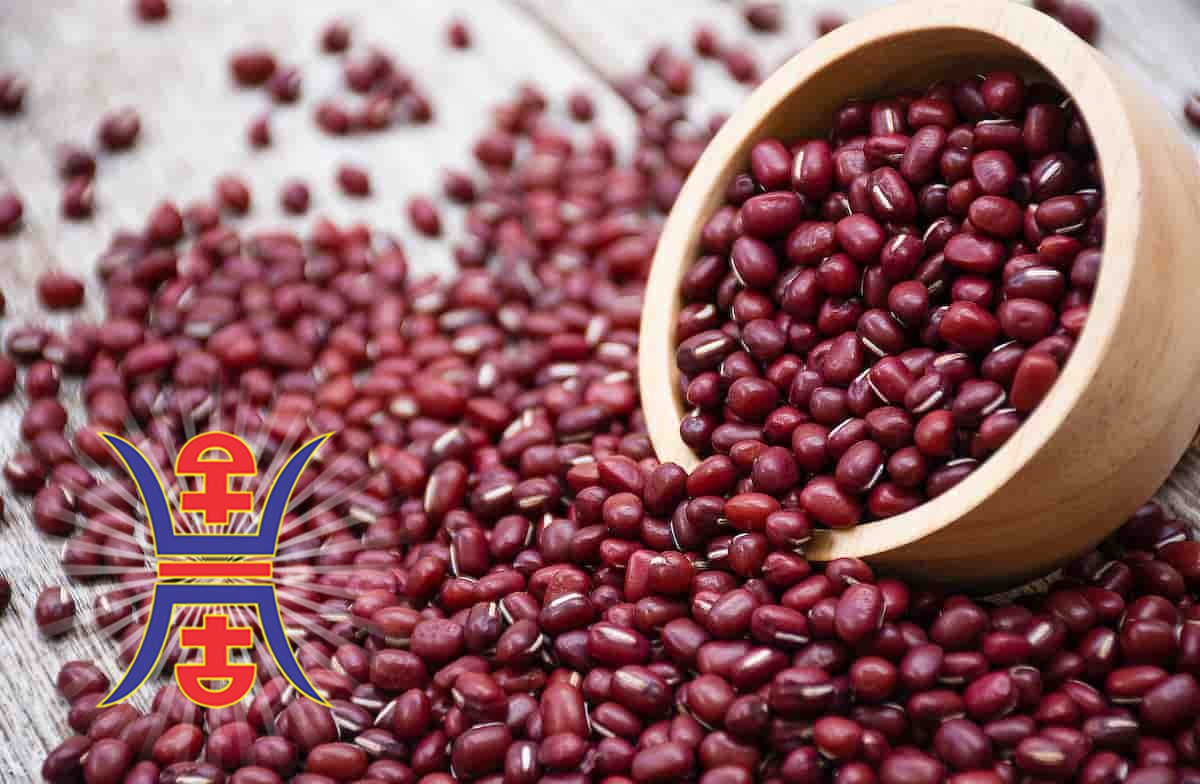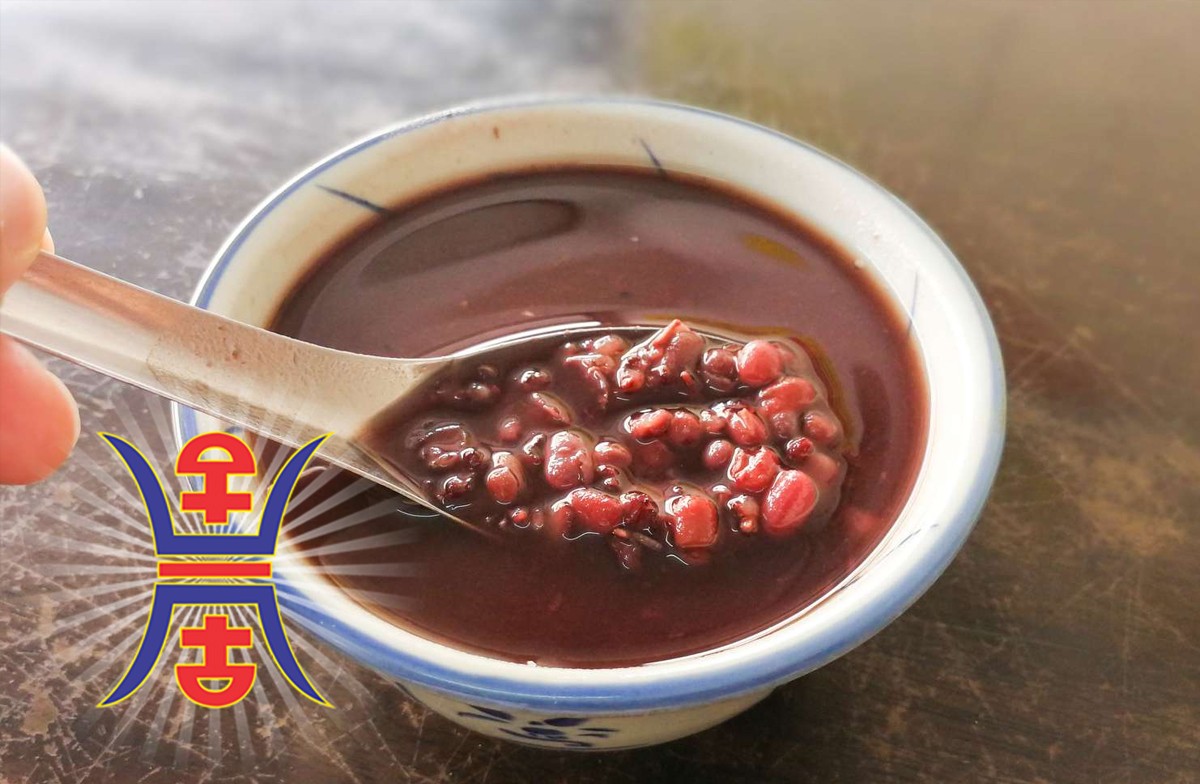Adzuki Bean
The adzuki bean plant is a type of legume that belongs to the family Fabaceae. It is an annual plant that grows to a height of about 30-60 centimeters and produces small, kidney-shaped beans that are usually red in color, although other varieties can be white, black, or mottled.
Adzuki bean plants have a deep taproot system that helps them to access nutrients from deep in the soil. The leaves of the plant are trifoliate, meaning they have three leaflets, and the flowers are typically pink or white in color.
Adzuki bean plants are commonly grown in East Asia, particularly in Japan, China, and Korea, as well as in other parts of the world with similar growing conditions. They prefer warm, humid climates and well-draining soil, and can be grown in both dryland and irrigated systems.
Adzuki beans are usually planted in the spring and harvested in the fall, and they can be used fresh or dried for later use. The plant is also often used as a cover crop to improve soil fertility and prevent erosion. Overall, the adzuki bean plant is a hardy and versatile crop that provides both culinary and nutritional benefits.
Adzuki beans, also known as Vigna angularis, contain a variety of chemical compounds that contribute to their nutritional and medicinal properties. Here are some of the main chemical ingredients found in adzuki beans:
- Carbohydrates: Adzuki beans are primarily composed of carbohydrates, including starch, fiber, and sugars such as glucose and fructose.
- Protein: Adzuki beans are a good source of protein, containing all essential amino acids necessary for human health.
- Minerals: Adzuki beans are rich in various minerals, including potassium, magnesium, calcium, iron, zinc, and copper.
- Vitamins: Adzuki beans contain several important vitamins, such as folate, thiamine, riboflavin, niacin, and vitamin B6.
- Flavonoids: Adzuki beans contain flavonoids, such as catechin and epicatechin, which are potent antioxidants that may help protect against oxidative stress and inflammation.
- Saponins: Adzuki beans contain saponins, which have been shown to have cholesterol-lowering effects and may also have immune-modulating and anti-cancer properties.
- Phytic acid: Adzuki beans contain phytic acid, which can bind to minerals and reduce their absorption in the body. However, soaking, sprouting, or fermenting adzuki beans can reduce their phytic acid content and improve mineral bioavailability.
In natural health, adzuki beans are considered to have a sweet flavor and a neutral nature. The sweet flavor is thought to tonify the spleen and stomach, while the neutral nature is believed to help balance the body's yin and yang energies.
The combination of sweet flavor and neutral nature is said to make adzuki beans particularly beneficial for the digestive system. They are believed to promote digestion, strengthen the spleen and stomach, and nourish the blood.
In natural health, adzuki beans are also considered to be a diuretic, which means they can help promote urination and detoxify the body. They are believed to support kidney function and help eliminate excess water and toxins from the body.
Adzuki beans nutritional benefits
- Protein: Adzuki beans are a good source of plant-based protein, which is essential for building and repairing tissues in the body.
- Fiber: Adzuki beans are high in dietary fiber, which can help promote digestive health, regulate blood sugar, and reduce cholesterol levels.
- Vitamins and minerals: Adzuki beans contain important vitamins and minerals, including folate, potassium, magnesium, iron, and zinc.
- Low in fat: Adzuki beans are low in fat, particularly saturated fat, which can help reduce the risk of heart disease.
- Low glycemic index: Adzuki beans have a low glycemic index, which means they can help regulate blood sugar levels and provide sustained energy.
- Antioxidants: Adzuki beans contain antioxidants such as flavonoids and anthocyanins, which can help protect against oxidative stress and inflammation.
- Gluten-free: Adzuki beans are naturally gluten-free, making them a good choice for people with celiac disease or gluten sensitivity.
- Versatile: Adzuki beans can be used in a variety of dishes, including soups, stews, salads, and desserts, making them a versatile ingredient in the kitchen.
Adzuki beans pharmacology
- Antioxidant properties: Adzuki beans contain various antioxidants such as phenolic compounds, flavonoids, and anthocyanins. These compounds have been found to scavenge free radicals and protect cells from oxidative damage, which may help prevent chronic diseases such as cancer, cardiovascular disease, and neurodegenerative disorders.
- Hypoglycemic effects: Adzuki beans have been found to have hypoglycemic effects in animal studies, possibly due to their ability to stimulate insulin secretion, increase glucose uptake in cells, and inhibit carbohydrate digestion and absorption.
- Anti-inflammatory effects: Adzuki beans have been shown to have anti-inflammatory effects, possibly due to their ability to inhibit the production of inflammatory mediators such as cytokines and prostaglandins.
- Lipid-lowering effects: Adzuki beans have been found to have lipid-lowering effects, possibly due to their ability to inhibit lipid absorption and reduce the expression of genes involved in lipid metabolism.
- Cardiovascular effects: Adzuki beans have been found to have cardiovascular effects, including reducing blood pressure, improving lipid profiles, and inhibiting platelet aggregation.
- Neuroprotective effects: Adzuki beans have been found to have neuroprotective effects in animal studies, possibly due to their ability to scavenge free radicals, reduce oxidative stress, and modulate neurotransmitter levels.
- Anti-cancer effects: Adzuki beans have been found to have anti-cancer effects, possibly due to their ability to induce apoptosis (programmed cell death) in cancer cells, inhibit angiogenesis (the formation of new blood vessels), and enhance immune function.
Who should eat adzuki beans:
- Vegetarians and vegans: Adzuki beans are a good source of plant-based protein, making them a valuable addition to vegetarian and vegan diets.
- People with diabetes: Adzuki beans have a low glycemic index, which means they can help regulate blood sugar levels and provide sustained energy without causing spikes in blood sugar.
- Those with high cholesterol levels: Adzuki beans contain saponins, which have been shown to have cholesterol-lowering effects and may help reduce the risk of heart disease.
- Athletes and active individuals: Adzuki beans are a good source of carbohydrates, which can provide sustained energy for physical activity. They also contain potassium, magnesium, and other minerals that are important for muscle function and recovery.
- Individuals with digestive issues: Adzuki beans are high in fiber, which can help promote digestive health and alleviate constipation.
- People with iron-deficiency anemia: Adzuki beans are a good source of iron, which is essential for the production of red blood cells and can help prevent iron-deficiency anemia.
- Those looking to improve their overall health and nutrition: Adzuki beans are a nutrient-dense food that can provide a range of vitamins, minerals, and antioxidants to support overall health and well-being.
Who should not eat adzuki beans:
- Cold and weak individuals: According to natural health theory, adzuki beans have a cooling nature and may weaken the digestive fire in people who are already cold and weak. Therefore, individuals with a weak digestive system, poor appetite, or cold hands and feet should consume adzuki beans in moderation or avoid them altogether.
- Those with spleen and stomach deficiency: Adzuki beans can be difficult to digest and may exacerbate symptoms of spleen and stomach deficiency, such as bloating, gas, and loose stools. Individuals with these conditions should avoid or limit their intake of adzuki beans.
- Pregnant women: While adzuki beans are generally safe for pregnant women to consume, some sources recommend avoiding them in early pregnancy due to their potential diuretic effects, which may interfere with the implantation of the fertilized egg.
- Those with G6PD deficiency: Adzuki beans contain an enzyme called glucose-6-phosphate dehydrogenase (G6PD), which can cause hemolysis (breakdown of red blood cells) in individuals with G6PD deficiency. Therefore, people with this condition should avoid adzuki beans.
In Person With Heshoutang Members
With Heshoutang Online Members
Fill Out the Questionnaire by yourself
When you subscribe to the blog, we will send you an e-mail when there are new updates on the site so you wouldn't miss them.

















Comments